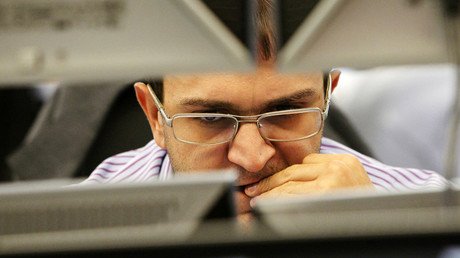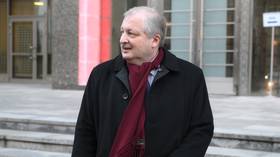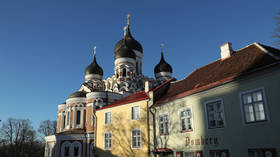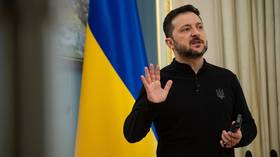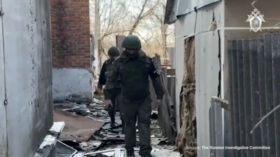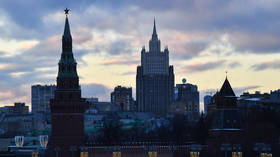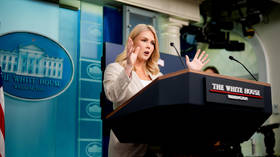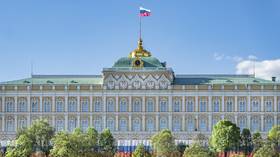‘MSM afraid of RT as more people turn to its common-sense reporting’ – George Galloway on BBC report
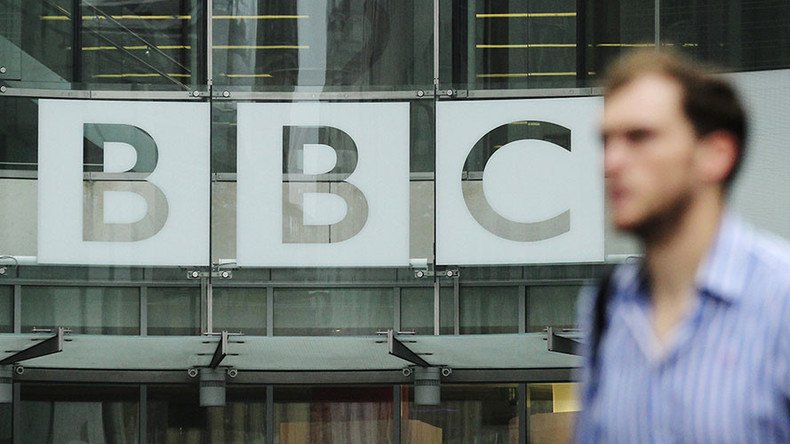
The BBC is seeking additional funding to expand in the Russian-speaking media space, while admitting the gains made by RT. Former MP George Galloway believes this is a sign that the mainstream media are afraid of the increasing influence of RT.
READ MORE: US media opens anti-Russia witch hunt to cover-up (real) DNC scandal
The BBC World Service has prepared written evidence into Britain’s relations with Russia. Covering the media landscape in Russia and the scope of BBC operations there, the report goes on to state that “the Kremlin is expanding its international media operations.”
Mentioning RT, the written evidence stresses that its viewing figures have seen a sharp increase. “RT currently broadcasts in English, Spanish and Arabic and has plans to expand into other languages. It also operates very successfully on social media.”
The BBC says it is exploring ideas to “enhance its offer to the region,” adding that “it is intended that these proposals will be funded by the additional money for BBC World Service announced by the UK Government in its Autumn Statement 2015.”
READ MORE: Jeremy Corbyn brands BBC bias ‘disgusting’ & ‘shallow’
RT spoke about the report with George Galloway, a former member of the British Parliament for first Labour and then the Respect Party:
RT:The BBC World Service’s stated mission is to provide impartial news and analysis in English and 28 other languages across radio, online, TV and mobile services. Is it achieving impartiality?
George Galloway: Well, it would be ridiculous for it to do so. He who pays the piper calls the tune. And the British Foreign Office and now directly the Government itself from the central Exchequer pays the [BBC] World Service hundreds of millions of pounds to ensure the political orthodoxy of the output. That’s obvious.
It’s just pure snobbery on the part of the BBC to refer to other broadcasters as “state broadcasters” or sometimes “state-controlled broadcasters” – the BBC is the British state broadcaster. All of it is funded by the taxpayer, by law and you go to prison, literally – prison – if you decline or refuse to pay. And then on top of that there’s 257 million I think paid directly to the [BBC] World Service by the British government, and that’s to ensure fidelity to the British government and the British state policy and outlook. And so the BBC is no different at all to other broadcasters that they routinely maligned as being “state broadcasters.”
READ MORE: Propaganda warfare? Russia accused of backing hacker attack on Washington think tanks
RT:The BBC World Service has submitted evidence to the Parliamentary Committee regarding the growing popularity of RT and the subsequent need for the BBC to strengthen its Russian-language broadcast. They’re asking the committee for extra financing. Will they get it?
GG: They certainly intend to finance their propaganda broadcasts in the Russian language. One way or another that will be done. But they’re on a losing wicket, I think.
The truth is more and more people in this social media world, in this internet world are going looking for what looks like a credible take on events and more and more people are finding that on RT, not just in English, but of course in Spanish and in Arabic, too, where RT is moving forward at a phenomenal rate. And that’s what really concerns them. They know that their own propaganda broadcasts have limited impact whilst RT, which is not propaganda and which includes a pluralism which the BBC would never dream of.
For example, I have a show on RT. No one has ever asked me, let alone told me, what I should say in that program and my point of view is often different from the official Russian government point of view or perspective on events. Sam Delaney on RT UK has an extremely right-wing television program which I find politically shocking and which often lampoons some of the things that would be much closer to the official Russian version of events. And both of us are welcome on RT UK. Neither of us would be welcome to present programs on the BBC.
READ MORE: Harry Potter and Russian Propaganda
RT:Do you believe the BBC could indeed perceive channels like RT as a threat? If so, why?
GG: They’re afraid of RT, they’re afraid of the increasing influence of RT, and the increasing discrediting of their own state policy as expressed through their state broadcaster. And this is a problem that they can’t get out of no matter how much money they spend.
For example, the Russian perspective on the events in Syria strikes most people as ordinary common sense. You don’t have to be pro-Russian or pro-Bashar al-Assad or left-wing to see that the RT perspective on events in Syria is common sense. Whereas most people in Britain regard the British government’s policy towards Syria and therefore the BBC’s policy towards Syria as nonsense, as absolutely antithetical not only to the best interests of the people of Syria and the wider Middle East, but to our own people. The BBC is now reporting fear about the return of hundreds of battle-hardened fanatics that we and the state broadcaster encouraged to go and become battle-hardened fanatics in Syria in the first place. Most British people can see that. Most British people instinctively feel that the Russian policy and the RT policy that these people are terrorists who have to be defeated on the battlefield is the common sense point of view. And that’s why, amongst many other things, more and more people are turning in Britain to RT, whilst the same cannot be said of Western-sponsored attempts to penetrate Russian-language areas with their propaganda.
RT:RT is often the target for criticism. Why do channels like France 24, Al Jazeera and Deutsche Welle not attract the same level of opprobrium?
GG: Because they’re all touting the same prevailing orthodoxy – the great English man of letters, Doctor Johnson, said that the grimmest dictatorship of them all is the dictatorship of the prevailing orthodoxy. And all of these stations that you mentioned are toying the line of that prevailing orthodoxy. They are all one version or another of American, British, and German, and French state versions of the truth. And because they are not the truth fewer and fewer people watch them.
One example that you gave, Al Jazeera, just six or seven years ago was the kingpin in the Arab world. It was becoming a household name even in the West because it was taking a different point of view to the prevalent American-dominated version. But in the last 6-7 years principally but not exclusively as a result of events in Syria Al Jazeera has become a mouthpiece for what is an American-dominated political line. And, not coincidentally, Al Jazeera has lost a gigantic chunk of its viewership because its audience knows this and doesn’t care for the American version of events that they are being served up. That’s why the Russian version of RT is now far and away the station of choice of people in the Arab world. And Al Jazeera cannot dare publish any audience figures because they would show a catastrophic decline in the prestige of Al Jazeera and in the numbers of people watching it.
The statements, views and opinions expressed in this column are solely those of the author and do not necessarily represent those of RT.

